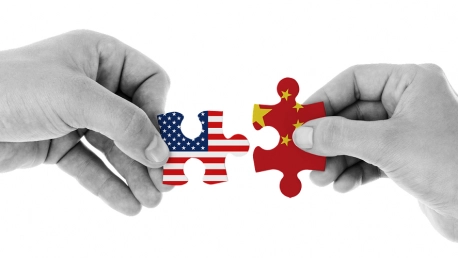Vladimir Putin’s war in Ukraine and the pandemic changed the world’s definition of normal. Not only is this new conflict in Europe destabilizing the entire region, but it is also impacting the global economy and provoking a massive increase in inflation rates everywhere. Moreover, according to the Center for Strategic and International Studies (CSIS), this conflict could also make Russia willing to align itself closely and openly with China—and more likely to exploit existing tensions in Asia, Africa, and Latin America.
The recent visit made by Nancy Pelosi to Taiwan demonstrated that the US is not intimidated by geopolitical challenges and that they will continue to support Taiwan despite China’s threats. According to CNN, the visit took place during growing US-China tensions, and in spite of warnings from the Biden administration that a stop in Taiwan should be avoided. Pelosi, however, is not only an open critic of Chinese policy, but she is also vocal about the importance of showing the US’s long-term support for Taiwan.
China openly criticized Pelosi’s recent trip to Taiwan, with China’s Foreign Ministry going as far as to say that the visit would critically impact the political foundation of China-US relations.
How Pelosi’s Trip Impacts US-China Relations
According to CSIS experts, immediately after the visit, both China and the US tried to assume control of the narrative about which country started the tension. Chinese officials highlighted Pelosi’s high rank in the US political hierarchy in an effort to depict her visit as a provocation. The Biden administration, however, pointed out that China conducted military drills near Taiwan in response which included sending short-range ballistic missiles over the self-ruled island. The US also labeled the crisis as “manufactured” and accused China of overreacting to a normal, albeit official, visit.
“China has overreacted, and its actions continue to be provocative, destabilizing, and unprecedented”, Kurt Campbell—Deputy Assistant to the President and Coordinator for the Indo-Pacific—said during a recent press call. He explained that China not only launched missiles near Taiwan, but also announced that some regions around the island are exclusion zones, thereby disrupting civilian, air, and maritime traffic. Beijing also sent “more than a dozen warships” to enclose Taiwan, and some of these ships continue to remain close to the island. Furthermore, China also imposed sanctions against Pelosi and her family.
According to Campbell, the US responded to these actions in a responsible, constant, and resolute way. America illustrated that they will not be intimidated, and exposed China’s recent actions for all the world to see.
New Geopolitical Challenges in 2022
Although the Taiwan-China conflict is not new, Pelosi’s visit triggered tensions among these regions again. And, given the fact that Vladimir Putin’s Russia is also leading a war in Ukraine, deteriorating relations between China and the US may present new geopolitical challenges. According to former US Secretary of State Henry Kissinger, countries around the world should make efforts for long-term peace, as diplomatic distances have the potential to set them back decades. While Kissinger’s statement was made with the ongoing conflict in Ukraine in mind, these two geopolitical issues can be connected.
“Ukraine should’ve been a bridge between Europe and Russia, but now, as the relationships are reshaped, we may enter a space where the dividing line is redrawn and Russia is entirely isolated. We are facing a situation now where Russia could alienate itself completely from Europe and seek a permanent alliance elsewhere,” Kissinger said. According to him, modern policies should begin by improving relations between Russia and Europe to prevent Russia from seeking a permanent alliance with China. However, restoring the European balance is not the only factor likely to reshape the geopolitical landscape of the future.
Russia’s war in Ukraine and its consequences are not only likely to impact US-China relations, but also to change the strategies and actions of North Korea, Pakistan, and India, and the Middle East.
The Importance of Long-Term Peace
There’s no question that long-term peace is essential for building a better future, and even more so in the aftermath of the pandemic. However, Russia’s war in Ukraine and deteriorating relations between the US and China might make the quest for long-term peace even more difficult. It may be worth noting that experts like Kissinger now believe that US-China relations have matured to become “unique in each side’s history.”
From a strategic perspective, these two countries are now “the greatest threat to each other” and the only military risk that each side needs to deal with. World peace may depend on developing and maintaining a balance in US-China relations—especially as the conflict in Ukraine continues to evolve.









